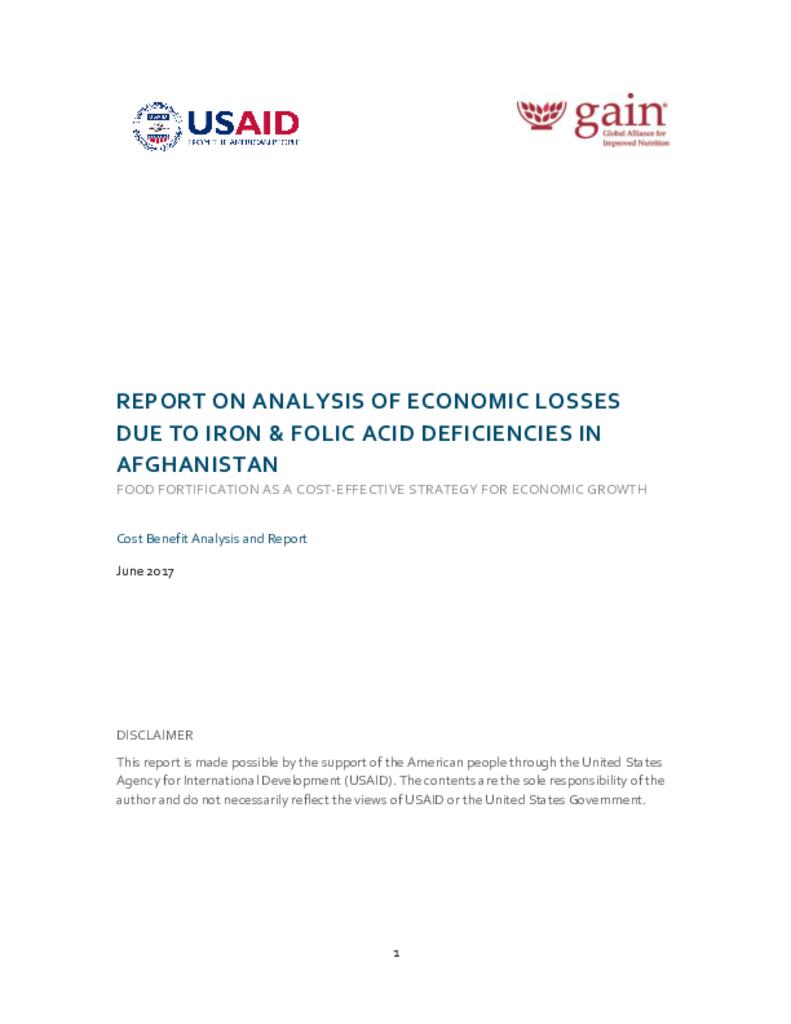Micronutrient malnutrition is a major public health problem in Afghanistan, with devastating, often lifelong consequences for the health, mental development, and productivity of its people, as well as the economic progress of the nation. Poor maternal and infant nutrition affects the well-being of communities and countries’ economic performance across generations.
This report presents the findings of a cost-benefit analysis study that looked at the cost-effectiveness of a single intervention, wheat flour fortification, in addressing micronutrient malnutrition. The analysis revealed that over a ten-year period, a successful fortification program would reduce these losses by USD 664.69 million.
This report underlines that in order to move the food fortification agenda forward in Afghanistan and create a supportive environment for action, stakeholders need to understand the impact of fortification, both in terms of health benefits and economic costs.
